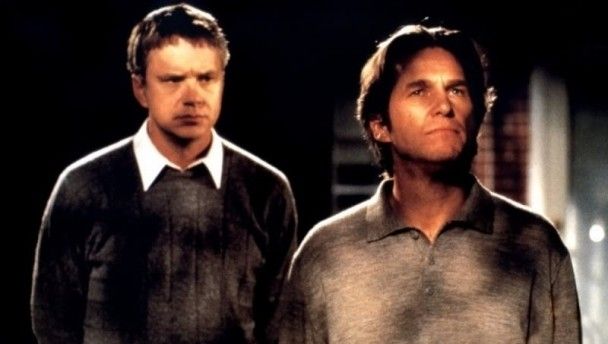It was released the same year as The Sixth Sense yet even Bruce Willis’ chiller has competition for one of the best movie twists of all time.
Only the sixth winner of the Nicholl Fellowship Screenwriting competition from the Academy of Motion Picture Arts and Sciences to ever be produced, Arlington Road lives on today for its unforgettable twist, a sting in the tail that infuriated and enraptured many in equal measure.
Bear in mind that we’ll go into spoiler territory for this one, so if you haven’t seen the film, please don’t read on.
Created in the wake of the devastating Oklahoma City bombing terrorism attack just four years previously, the film stars Tim Robbins and Jeff Bridges as two neighbours with entirely separate agendas.
Bridges’ Michael Faraday is a bereaved history professor due to teach a course on American terrorism while his new neighbour, an architect named Oliver Lang, has more than a few skeletons in he and his wife Cheryl’s (Joan Cusack) closet. If Faraday’s hunch is correct, both may be homeland terrorists planning a new attack from the safety of suburbia.
Dismissed as an overly suspicious crazy, Faraday becomes obsessed with the possibility, reaching into Oliver’s past to discover his true identity, though not his current motives.
It’s a real nail-biter throughout, especially when Oliver becomes acutely aware that his neighbour is onto him. It goes without saying that though the script is riddled with coincidences, both Bridges and Robbins are spellbinding throughout and help ramp up the tension.
Now let’s talk about the ending. The 1990s were notable for antiheroes and shock twists but perhaps none more so than Arlington Road, which had the audacity to not only feature Lang’s terrorism attack coming to fruition (a tough decision after the Oklahoma bombing), but actually conspires to have the heroic Faraday blamed for the attack.
His son is even placed in foster care, knowing nothing of his father’s ultimately doomed attempts to stop the Lang couple, who get away scot-free.
This ending infuriated plenty, as it wasn’t just a case of the bad guy getting away with it – the bad guy got away with every single thing and destroyed the family of the protagonist. Could we ever see the likes again in a big Hollywood production?
With 9/11 occurring just two years after its release – an event that studios are still trying to come to terms with – don’t bank on such an unexpected though incredibly downbeat finale for a film with similar inspiration.
For that reason alone, Arlington Road’s power is likely to remain undiminished in the years to come.
For more cult films, check out the Jameson Cult Film Club.






















































